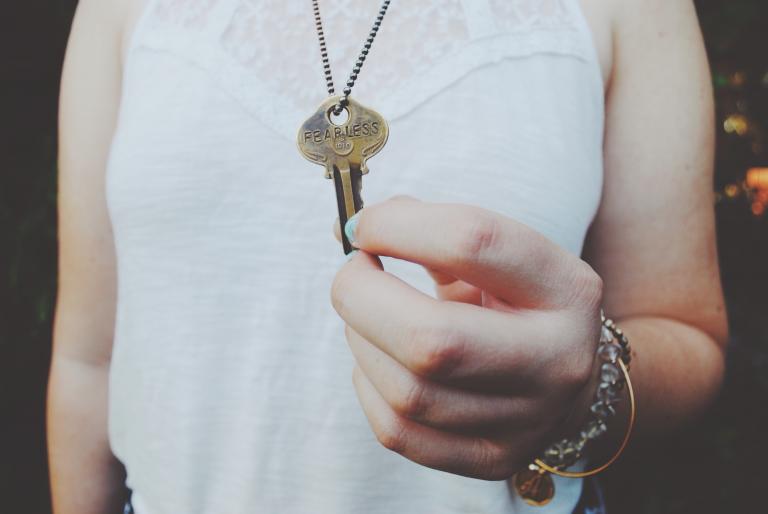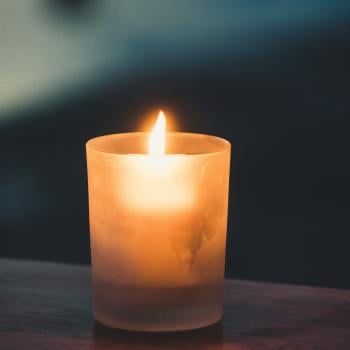
It’s a given in life. We all want to be happy, all the time. Yet, the challenges that occur in our lives, whether it’s issues at our job, with our finances, or with our spouse or kids, can often get in the way. But what if that wasn’t the case?
What if the key to happiness was this simple: Do you want to be happy or not? Answer yes, and you have a life of happiness. Answer no and you don’t.
The idea that our personal happiness is a choice made by us is put forth by Micheal Singer in his book The Untethered Soul. I just wrote about one facet of this book, the two voices inside us, and this is another: the notion that our happiness is based not on our set of external circumstances but on our state-of-mind.
Singer points out that when everything is going well in our lives, it’s easy to be happy. But the moment something difficult happens, it’s not so easy. When something upsets our personal apple cart, we get agitated, we worry, we grow melancholy. That’s a tough way to live and this popular bumper-sticker line calls out the reason why:
SH*T HAPPENS
The guy behind the counter is rude to you. Someone cuts you off in traffic. Your water heater springs a leak. You come down with a nasty cold, don’t get the promotion at work, you have a fight with a significant other. All these things may happen and worse.
That’s why you have to commit to happiness, regardless of your external conditions.
Let’s face it, we are all born and we all die. What happens during the in-between time is up to us. We can choose to ride the peaks and valleys, the ups and downs, and let our level of happiness be determined by the roller coaster of life—or we can commit to living a happy life all the time. Again, it’s easy to do when things are going well. We need to keep this same commitment to happiness when things go south.
This means when something “bad” happens, we need to just let it go. It’s there, it happened, deal with it and move on. Let it go.
Time for a quick reality check. By no means do I believe this is easy. In fact, it may only possible if you have a defense mechanism in place for when bad things do happen. For some people, this involves repeating a positive affirmation. For others, it’s remembering to breathe. I’d also say it’s a heck of a lot easier if you engage in a regular meditative practice like centering prayer and have a mantra that can bring you back to a contented place.
According to Singer, the key to letting go is keeping your heart open to life. When we are stressed or upset, we often shut down to life. JUST LIKE THE BODY NEEDS OXYGEN, THE HEART MUST REMAIN OPEN TO LET POSITIVE ENERGY IN. When your heart is closed, no energy can come in. You wallow in your own toxic stew. Singer offers the following advice:
When you start to close, just question whether you’re really willing to give up your happiness. If you learn to stay open all the time, great things will happen to you. You simply have to learn not to close.
The key is to act the moment you feel like you want to close, the moment you want to fall into the “woe-is-me” mode. That’s the time you “just pick yourself up and affirm inwardly that you don’t want to close, no matter what happens.” You don’t want your happiness to be conditional on other people or outside events. Again, from Singer:
Things are going to happen to you, and you’re going to feel the tendency to close. But you have the choice to either go with it or let it go. Your mind will tell you that it’s not reasonable to stay open when these things happen. But you have limited time left in your life, and what’s really not reasonable is to not enjoy life.
At first glance, you might think this is easier said than done. I hear you.
But I think much of what Singer says dovetails with the philosophy of Viktor Frankl and his classic book Man’s Search for Meaning. As you may know, as a Jewish prisoner in a Nazi death camp, Frankl faced the harshest living conditions imaginable. Yet somehow, while others around him deteriorated spiritually, Frankl persevered, somehow finding the good in the most deplorable of situations. In his words:
Everything can be taken from a man but one thing: the last of the human freedoms—to choose one’s attitude in any given set of circumstances, to choose one’s own way.
He repeats that sentiment here:
We are not Viktor Frankl. Our lives are not threatened on a daily basis. We don’t live in a death camp. In fact, chances are, if you are reading this, your life is actually pretty good. So why not pursue happiness daily? You already hold the key within you.
While imprisoned, Frankl came to the conclusion, “It did not really matter what we expected from life, but rather what life expected from us.” It raises the question: WHAT DOES LIFE EXPECT FROM YOU? Will you live this one precious life careening from one emotion to another or with a commitment to boundless happiness?

















